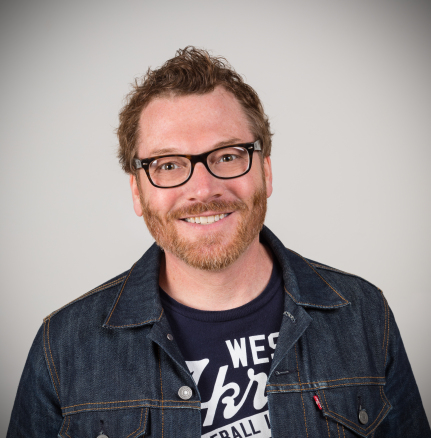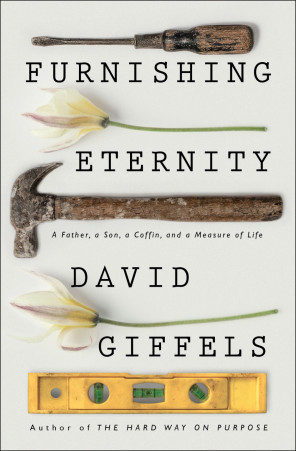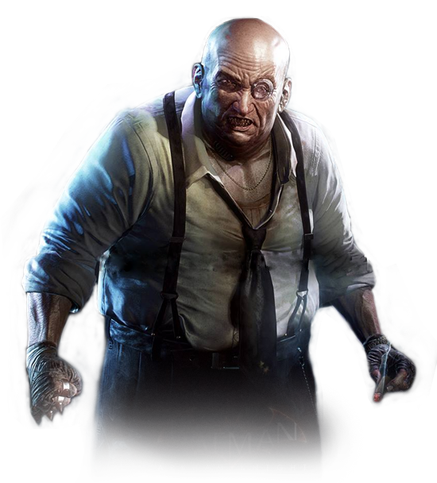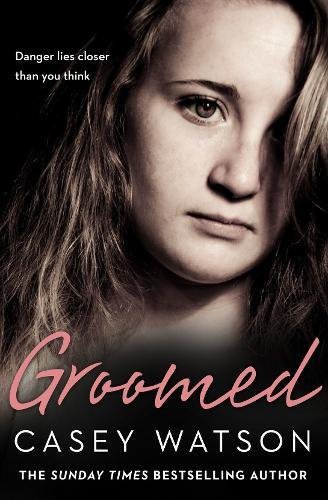
We are where we come from—and where we choose to make our home. For David Giffels, that’s one in the same: Akron, Ohio, Rubber Capital of the World, where he grew up and now lives, teaches, and writes. The Hard Way on Purpose: Essays and Dispatches From the Rust Belt (2014) is his fourth book, following his 2008 memoir, All the Way Home: Building a Family in a Falling-Down House. His new memoir, Furnishing Eternity, is due out January 2, 2018.
Earlier this month, I spoke with David about Northeast Ohio’s brand of funny, fellow Akron native Lebron James, why the hard way is the best way, about getting serious for his latest book—and more.
David — In The Hard Way on Purpose, you use humor to great effect. You call Akron “the Ralph Malph of the American industrial belt.” With your identity so closely tied to the place, when the place gets beaten up—nearby Cleveland is “the mistake on the Lake” to many still—do you take it personally? Do you deflect with humor?
It’s part of the culture here to laugh at ourselves. When you’re in any culture that’s been misunderstood, degraded, or used as the punchline to a joke, one of your defense mechanisms is to get to the punchline, first. Most Rust Belt cities—but especially this area—have a long tradition of this kind of humor. Here, a lot of people have traced it back to Ghoulardi, a 60s late-night B-movie horror host on local TV. He had this dark, ironic, anti-authoritarian sense of humor that influenced a lot of the people who’ve become our local cultural spokes-heroes: bands Devo, The Cramps, and Pere Ubu; and filmmaker Jim Jarmusch. There’s a certain kind of homeliness to where we live, and instead of being ashamed of it, you can make fun of it—and be a part of it, too.
How did you learn to write funny?
I guess it partly comes from having two parents who had really good senses of humor. I don’t know if I learned how to do it. One of my first professional jobs was writing for MTV’s Beavis and Butthead. I learned a lot from that. I talk about this in my new book: I was writing these clever-sounding lines, but it was not working. I was trying to be the Noel Coward of MTV. And show creator Mike Judge said, “Just make it stupid.” It was a great piece of advice. A lot of humor writing comes from letting down your guard, letting things roll.

You were a newspaper columnist before becoming a professor of creative writing and an author, and you wrote about Cleveland sports teams. One of the essays in The Hard Way on Purpose focuses on fellow Akron native, Lebron James. I have to ask, how do you like Lebron now?
The Lebron story is the gift that keeps on giving. It’s a Homeric epic, is how I describe it in the book. And that’s not an overstatement, really. Lebron left Cleveland in 2010, and I wrote my essay in 2012, believing he would come back, but cursing myself for that hope. Lebron envelopes the story of the Rust Belt in a profound way. He was born almost exactly at the point the term “Rust Belt” entered the lexicon, in a city that was the first to define what a Rust Belt city looks like, acts like, and does. He came of age as Akron, and all Northeast Ohio, was trying to find a new identity. He became that identity, but it wasn’t just that we had a celebrity in our midst; it was that we had a celebrity who explicitly identified as a member of this community. It’s not just his celebrity, but his sincerity. We were so bitter and hurt, when he said he was leaving, because it wasn’t just a star athlete leaving, it was someone we’d put a lot of weight on—some of it unfairly. He’s been very supportive of local causes and he has a foundation here. I have to believe that his commitment is real. I have to believe in that hard-bitten, loyal way.
I can’t wait for your new book. What can you tell me about it?
The new book is a memoir called Furnishing Eternity. It starts out with my father and I on a half-cocked mission to build my casket. It’s not that I need one immediately. We have a long history of building things together, and my wife and I have a longstanding debate about how one should be buried. So, the book starts out on a lark, but then over the course of writing it, my mother and my best friend [John Puglia] both died, within a year of each other. And the book becomes much more a meditation on mortality and loss and resurgence from those things—and a lot of other themes I didn’t see coming as I set out to write it.

In The Hard Way on Purpose, you talk about redemptive endings—in life, and in essay-writing—as being too easy, as inauthentic. Why do you think that?
One of the frustrating things that started happening when I started publicizing The Hard Way on Purpose, was people would ask, so, is Akron back? Is the Rust Belt back? Interviewers wanted an easy answer. But, especially in this region, we have to work hard to reinvent. The redemptive ending is false because what happens is, you go through hard times and everything isn’t all better, but you’re better, because you know how to get through the hard times. And that comes with the built-in expectation that hard times will come again. Lebron James left, and it hurt; if he leaves again, we know what that hurt is going to feel like. The real story here in the Rust Belt is, you grind and grind and grind; you gain two feet and then lose a foot. Life doesn’t just get easy. And that wouldn’t be the point.
You teach creative nonfiction writing. What’s your best advice to new writers?
The most obvious—but truest—advice is to read and write all the time. When I’m teaching a creative writing class, what I really like is to be able to be sure that my students are reading and writing well, and to let them discover what that’s like. It’s easy to say you’re a writer, but when you get to experience what it feels like to be a writer, it changes your perception. You discover how hard it can be but also how rewarding it can be. I’ve been a working writer since I was just out of college, and I can tell you that I have more bad writing days than good. But it’s like in baseball: a really good hitter only gets a hit one in three times. If you think of it in those terms, you have to strike out a lot to hit it.
What do you tell your students about writing about place?
I read Letters to a Young Poet by Rainer Maria Rilke for the first time when I was an undergraduate English major. It was brought to my attention by the poet Rita Dove, who is also from Akron. In the book, Rilke says to a young writer: “If your everyday life seems poor, don’t blame it; blame yourself; admit to yourself that you are not enough of a poet to call forth its riches; because for the creator there is no poverty and no poor, indifferent place.” For both Rita Dove and I, who come from what some may see as a poor, indifferent place, writing about it is fruitful. There’s a richness in writing about unglamorous places. Lots of writers have written beautifully about Paris; it’s a whole other thing to write that way about Akron, Ohio. There’s a great moral value in it, because we have a chance to change the perception of this place. And it’s so interesting to write about Ohio, because it carries so many different pieces of the American experience: there’s industry and post-industry, Appalachia, the true Midwest.
Reinvention figures into The Hard Way on Purpose quite a bit. Is Akron still authentically Akron? How is today’s Akron?
The city has recently undergone a pretty major transformation in leadership, almost a complete turnover to younger leadership with a lot of new and different ideas—that have manifested in very visible ways. For instance, an Innerbelt highway that went over the city—the old way of getting cars in town for commerce and back out to the suburbs as fast as possible—is being demolished. [The Oak Park Renewal Project will reconnect the historic Oak Park neighborhood to downtown Akron.] And there’s a big conversation about what to do with this [Oak Park area] space. There’s a lot of talk about turning it into Akron’s version of Central Park, a major greenspace right through downtown. Things like that, and a ton of new residential buildings in downtown, are changing the city and also changing the perception of what a Rust Belt downtown looks like. It’s making for a new kind of image and identity.
So you’re cool with the changes to your hometown?
Once Lebron breaks your heart, you learn how to roll with the changes.
Several of your essays depict a struggling for identity. I think you come down on: it’s not about where you hang out, what you wear or listen to, but where you choose to stay despite the odds. Is that close?
Yeah, like the millions in my generation who committed to staying in a Rust Belt place, I think we recognize that it was a true lifestyle decision—and an exercise in faith. This was a struggling place, but that’s also empowering, because it means this is a place that needs us. I’m much more needed in my hometown of Akron, Ohio, than I would have been if I had moved to Chicago or New York City. It creates an immediate and strong sense of community, when you live in a place like this with other people who think the way you do.
On my blog, I’ve mused about pierogies, one of my favorite ethnic foods of Cleveland. Is there a food that encapsulates Akron for you?
I just had a really great plate of pierogies at Great Lakes Brewing. But the Swensons hamburger is the defining food of Akron. In fact, there’s a Swensons opening in Cleveland, and I’m conflicted about this. Of course, there’s a sibling rivalry between Akron and Cleveland. So, it’s fine for Clevelanders to recognize the glory of the Swensons hamburger, but you’re not allowed to take it past the county border. It’s almost like kidnapping.
Thanks so much to David Giffels!
Check him out at his website. And, be sure to snag a copy of his latest book, Furnishing Eternity.
Let’s talk: what’s the defining place in your life? What shapes it—its humor, its heroes, its culture, its built environment, its food? How does that place figure into what you read and write?
Comment below or on my fb page. Like Rust Belt Girl? Follow and share with your friends and social network. Thanks! ~ Rebecca
Advertisements Share this today:





